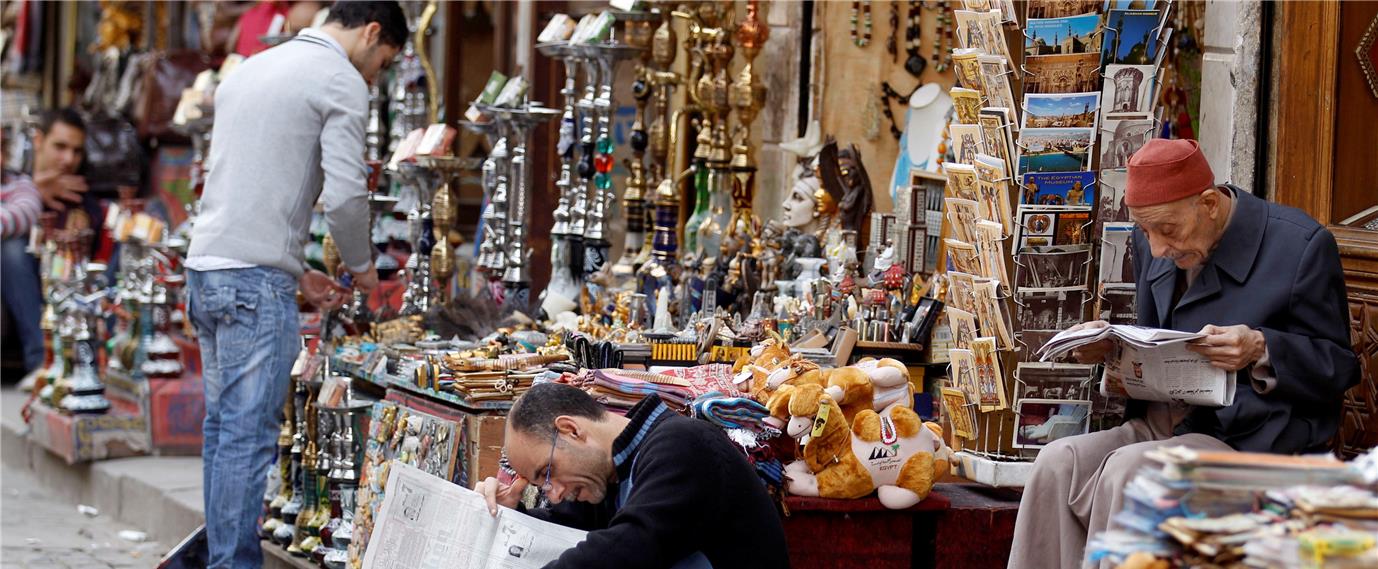مقدمة كتاب الصحافة في زمن الحرب
تشهد الصحافة تغييراً جذرياً. أتذكّر بشكل واضح حين اندلعت الثورة الإيرانية بين عامي 1977 و1979 كنت طالباً متخرجاً من جامعة بنسلفانيا. وكان الاستماع إلى التغطيات الإخبارية المحلية أو قراءة "نيويورك تايمز" و"واشنطن بوست" أو مشاهدة الشبكات التلفزيونية الرئيسية "إي بي سي" و"سي بي أس" و"إن بي أس"، تمريناً على التعذيب الذهني. فعقلي وقلبي كانا في طهران بينما جسدي عالق في بنسلفانيا. وأخيراً قدت سيارتي من حرم الجامعة إلى مجمّع تسوّق كبير في ضاحية "كينغ أوف براشا" حيث قيل لي إنّ هناك متجر بضائع قديمة الطراز لـ "راديو شاك" يبيع أجهزة راديو بموجات قصيرة. وبالفعل اشتريت واحداً وحاولت التقاط أثير راديو طهران ومتابعة أخبار الأحداث المتقلبة هناك.
أما اليوم وبعد مرور أربعين عاماً، أستيقظ باكراً جداً وعلى الطاولة الملاصقة لسريري جهازي الآيفون، حيث أبدأ قراءة الأخبار بالفارسية في إيران أو بالعربية في العالمين العربي والإسلامي في الوقت الذي يكون فيه أصدقائي وعائلتي وزملائي في تلك الدول عالقين في زحمة الصباح متوجّهين إلى أعمالهم. وقبل أن أخلد إلى النوم في نيويورك أتابع الأخبار التي سيقرأها أصدقائي في العالم العربي في الصباح التالي. باختصار، في نيويورك أنا سابق لعناوينهم. لست مدمناً على الأخبار ولكنّي بمجرّد أن أتصفّح صفحة الأخبار على الآيفون أشعر أنني أضع يدي على نبض أخبار العالم. وقد حصل هذا التحوّل الدراماتيكي الذي يرتكز على التغيرات التكنولوجية المذهلة، خلال حياة واحدة أي منذ أن كنت في أوائل عقدي الثاني مع بدء الثورة الإيرانية في منتصف سبعينيات القرن الماضي إلى أن دخلت عقدي السادس عندما هزّت الثورات العربية العالم.
ويعبّر تركيز هذا الكتاب حول الصحافة في مناطق تشهد أطول فترة نزاع وحرب في العالمين العربي والإسلامي، عن حال الصحافة اليوم على مستوى العالم. ففي عصر "الأخبار الكاذبة" و"الحقائق البديلة" و"ما بعد الحقيقة" لا يزال السؤال المطروح هو كيف نعرف ما الذي نعرفه فعلاً عن العالم؟ والزاوية الخاصة التي يتخذها الكتاب من خلال كونه "من العالم العربي وعن العالم العربي" تمنحه خصوصية سياسية ومعرفية فريدة. فستقرأون في صفحاته كيف تتلاقى أطر العمل النظرية والمفاهيمية مع أمثلة وتجارب من الواقع وهو إنجاز سيشغل أجيالاً مقبلة من الصحافيين والأكاديميين.
أثناء دجلها المسهب كالمعتاد، تفوّهت كيليان كونواي، مستشارة دونالد ترامب، تلك العبارة الغريبة "حقائق بديلة" التي أثارت عجب وفضول أولئك الذين يألفون فكرة "اللغة الجديدة" الأورويلية، إذ تبين فعلاً أن لهذه الأخبار وجوداً حقيقياً بل وصار لها اسم قائم ومتداول، ألا وهو "الحقائق البديلة". شكّلت تغطية "نيويورك تايمز" لمرحلة البروباغندا في الحرب على العراق خلال رئاسة جورج بوش، لا سيما تغطية جوديث ميلر التي اتسمت بالتدليس والكذب حول وجود أسلحة دمار شامل بحوزة نظام صدام حسين، مثالاً على الحقائق البديلة والأخبار الكاذبة. ونحن لم نكن نعرف تلك المصطلحات حين كانت "نيويورك تايمز" تمارس مفاهيمها رغم الثمن الباهظ لذلك والذي تمثّل في المساعدة والتحريض على تدمير بلد بأكمله.
فمن يقول الحقيقة؟ ما هي الحقيقة؟ ما أهمية ذلك أساساً؟ يشهد العالمان العربي والإسلامي تغييرات مزلزلة. ولم تعد وسائل الإعلام التي تسيطر عليها الأنظمة هي المصدر الرئيسي والوحيد للمعلومات حول العالم. غير أن هذه الحقيقة لا تمنع التعامي المقصود الذي تفرضه المصلحة الشخصية على ما يختار الناس تصديقه. في المقابل غيّر الإعلام الاجتماعي وجه قطاع صناعة الأخبار. وإن كان الافتراض بأن اندلاع الربيع العربي كان ثورة فيسبوكية، ولا يزال مبالغة تكنولوجية، فإن حقيقة حصول تعبئة اجتماعية على شبكات الإنترنت لا تزال اليوم صحيحة أكثر من قبل.
في الواقع، لدى جزء منّا ممن نشأوا في ظل أحد أشكال الديكتاتوريات نزعة صحية إلى الشك في الأخبار بشكل عام، وفي أي إعلام إخباري. ولكن لا يعني ذلك أننا بطبيعتنا شكاكون أو أننا أسرى لعقلية مؤامراتية، وإنما لدينا نظرة خاصة إلى الحقيقة وذلك لأننا نشأنا ونحن ننظر إلى الحقائق من زوايا متعددة.
هل العرب قادرون على نقل شؤونهم الخاصة بشكل دقيق؟ هل يمكن للمسلمين أن يكونوا مصادر موثوقة للمعلومات الموضوعية عن حياتهم اليومية والتغييرات التاريخية؟ لا تتسم الأخبار الخارجة من العالم العربي اليوم بـ "الموضوعية" لأن من ينقلها هي جهات تستثمر أخلاقياً وسياسياً في نتائج ما تنقل. ففي كتابه "معذبو الأرض" (1961) يرى فانون أن "ابن البلد يعتبر الموضوعية موجّهة دائماً ضدّه". أضف إلى ذلك كلماته القيّمة الأخرى: "حين يسمع المواطن ابن البلد حديثاً عن الثقافة الغربية فإنه يشهر سكينه، أو يتأكد، على الأقل، أنها في متناول يده". ونحن في العالم العربي والإسلامي نغيّر طريقة تعاملنا مع الأخبار. نحن لا نقدّم حقائق بديلة بل نعيش حقائق بديلة يشوّهها حكّامنا منذ الظروف الاستعمارية لولادة أممنا حتى الظروف التي تلت الاستعمار والتي أخرجت لنا طغاة ورثوا تلك الأمم.
ما جمعه محررا هذا الكتاب، عواد جمعة وخالد رمضان، هو مزيج من وجهات النظر الحساسة حول الظروف الشديدة التقلّب للإعلام والتغطيات الإخبارية. فمخاوفهم بشأن القانون الإنساني الدولي وحقوق الإنسان وحرية التعبير، تعكس الظروف الشاقة التي يعيشون فيها مع مخاوفهم اليوم. فالصحافيون يواجهون الهجمات والاتهامات والاعتقالات حين لا تتوافق تغطياتهم مع سياسات الدولة التي يعيشون فيها، فيما حرية التعبير غائبة عن معظم العالم العربي. بينما نرى أن إسرائيل تستهدف "الجزيرة" بشكل خاص لأنها تعارض سيطرتها الاستعمارية على فلسطين. لذلك فإن ما نقرأه هنا ملحّ لأن لدى هؤلاء الروّاد الذين يشاركوننا تجاربهم على صفحات هذا الكتاب شيئاً بالغ الأهمية يقولونه للعالم.
وبنظرة سريعة على عناوين المقالات وما تحتويه، نكتشف المخاوف والانشغالات الكبرى التي تضيء على ظروف الصحافة في العالمين العربي والإسلامي. ويبقى العنصر الأهم في جميع المقالات، هو سلامة الصحافيين. ففي "حماية الصحافيين بموجب قانون حقوق الإنسان والقانون الإنساني الدولي" يلفت أبو عباس النظر إلى مخاطر الصحافة كمهنة. ويعبّر بيتر غريستي عن مخاوف مشابهة في "النزاهة المهنية أهم ضامن لحماية الصحفيين".
بعد ذلك تأتي مسألة مسؤوليات الصحافيين في ظل الظروف الصعبة. ففي "كيف يتفادى الصحافي خطاب الكراهية والتحريض على العنف" يقودنا إبراهيم صابر إلى مسألة شائكة تتمثل في كيفية التمييز بين حرية الصحافة وحرية التعبير. ورغم أنها ليست بالمهمة السهلة إلاّ أن تناولها يدلّ بشكل واضح على البيئة المتقلّبة التي تثار فيها المسألة.
يجمع الكتاب بين دفتيه آراء عدد من الصحافيين المحنّكين الذين خبروا العمل الصحفي في مناطق الحروب. فالانشغال بنضال الصحافيين لتحقيق الدقة في تغطياتهم الإخبارية غير بعيد عن وابل النيران والقصف، واضح في مقالة "التغطية الإخبارية في ظل الاحتلال في فلسطين" حيث يختبر تامر المسحال حدود التغطية في مثل هذه الظروف. وتأتي مسألة الجندر في الصحافة واضحة في مقالة "رغم الحواجز والمخاطر: تجربة عمل نسائية في غزة" بقلم أميرة أحمد حرودة، كما في "الحرب على عتبتكم: عن الصحافة والمناصرة" بقلم زينة إرحيم.
ويعرّج كريستيان تريبرت وهادي الخطيب على مسألة التكنولوجيا الحديثة في "الصحافيون الرقميون: التحقيق المفتوح المصادر والتحقق من الأخبار في النزاعات". ونرى المخاوف نفسها في "قصص الحرب على صفحات الإعلام الاجتماعي: أخلاقيات الاستخدام والتفاعل مع الجمهور" بقلم صخر الماخذي، كما في مقالة خالد فهيم "أكثر من شهود: صحافة المواطن خلال الثورة المصرية". هذا الكتاب باختصار يقدم أحدث ما مرّ به الصحفيون من خبرات وتجارب ميدانية، وقد أخذوا على عاتقهم في هذا الكتاب أن يتناولوا بالبحث والتحليل جانباً من الأسس المهنية والقواعد الأخلاقية التي لا يمكن لأي صحفي الاستغناء عنها وتحقيق التميز بدونها.
إن الخلل الأكثر تدميراً للتغطية الأوروبية والأميركية للأحداث في العالمين العربي والإسلامي هو بالتأكيد أحاديتها اللغوية المزمنة والمرضية. فعجز الأوروبيين والأميركيين عن التواصل بالعربية أو بأي لغة أخرى محكية في المنطقة ليس مجرّد مسألة لغوية، بل يترجم إلى نظرة ملتوية إلى الزمان والمكان والثقافة والظروف. فتخيّل صحافياً مصرياً أو إيرانياً أو تركياً يحاول الكتابة بشكل مقنع عن بريطانيا أو الولايات المتحدة من دون أن يعرف الإنكليزية أو عن فرنسا من دون أن يتكلّم الفرنسية... إلخ.
فحتى فترة قصيرة جداً لم يكن لدى معظم وسائل الإعلام الأميركية البريطانية مراسلون أجانب في هذه الدول قادرون حتى على إجراء محادثة يومية واحدة بالعربية أو بالفارسية أو بالتركية أو بالأوردو، وتبقى الحال كذلك حتى يومنا هذا. وبالطبع لا يكمن حل هذه المعضلة في انتهاج سياسة نقيضة مشابهة تصر على توظيف محليين فقط، لأن هذه سياسة مزعجة وغير حيادية. فلا غنى عن دمج التفكير الجلي مع حميمية ضرورية تجاه لغات وثقافات المنطقة، لفهم دينامية منطقة ناشئة مثيرة للقلق. فلا تزال هناك فجوة كولونيالية تفصل بعنف بين طريقة ممارسة الصحافة من قبل أنصار المحورية الأوروبية والهندو أوروبيين.
ليس هنالك في الإعلام العالمي مركز ولا أطراف بالشكل الذي كانت عليه الحال فيما مضى. ولحسن الحظ في هذا العالم اللامركزي الذي نعيش فيه، يقع كل مصدر خبر على بعد نقرة واحدة من الآخر. ولا تحصل السجالات والمحادثات في الولايات المتحدة أو أوروبا ـ لأنه يتم سحبها ودفعها بشكل حاسم نحو تداعياتها العالمية ـ وبذلك تحصل في كل مكان وأي مكان. ومن شبكات قديمة الطراز مثل "إيه بي سي" و"إن بي سي" و"سي بي أس" إلى فضائيات مثل "فوكس نيوز" و"سي إن إن"، مروراً بصحف مطبوعة تابعة لشركات مثل "نيويورك تايمز" و"واشنطن بوست" ومعاقل الليبرالية البرجوازية مثل "نيويوركر" والتمهيد الليبرالي للاستيلاء الصهيوني على فلسطين في "هآرتس"... نتأرجح باتجاه وسائل إعلام تتحكم فيها الدولة مثل "بي بي سي" ونظيراتها في العالم العربي والإسلامي. فـ "بي بي سي" هي امتداد للمعلومات الاستخباراتية الضرورية لخدمة السياسة الخارجية البريطانية وبالتالي للنزعة الكونية الأوروبية المتأخرة التي لا يمكن لأي موظف أفريقي أو جنوب آسيوي في "بي بي سي" التكتم عنها. ينتقدون "الجزيرة" لأنها صمتت عن العائلة القطرية الحاكمة ويغفلون تملّقهم للعائلة البريطانية الحاكمة. فأنا لم أقرأ يوماً كلمة واحدة على "الجزيرة" فيها تزلّف للعائلة الحاكمة في قطر كما يتزلف مراسلو "بي بي سي" الملكيون للعائلة الحاكمة هناك بلا خجل. ولكن هذا لا يعني أن التفكير بشكل نقدي أكثر ليس مطلوباً في أي وسيلة إعلامية بما في ذلك "الجزيرة"، بل ربما "الجزيرة" بشكل خاص. ببساطة أردت أن أقول إنه بعد وقت طويل من وفاة فانون لم نعد نحتاج الوصول إلى مِديتنا حين يتحدث الأوروبيون أو الأميركيون عن الموضوعية، إذ يمكننا أن نغيّر القناة أو نختار موقعاً إلكترونياً آخر.
نيويورك
سبتمبر 2017


















![Palestinian journalists attempt to connect to the internet using their phones in Rafah on the southern Gaza Strip. [Said Khatib/AFP]](/sites/default/files/ajr/2025/34962UB-highres-1705225575%20Large.jpeg)





















